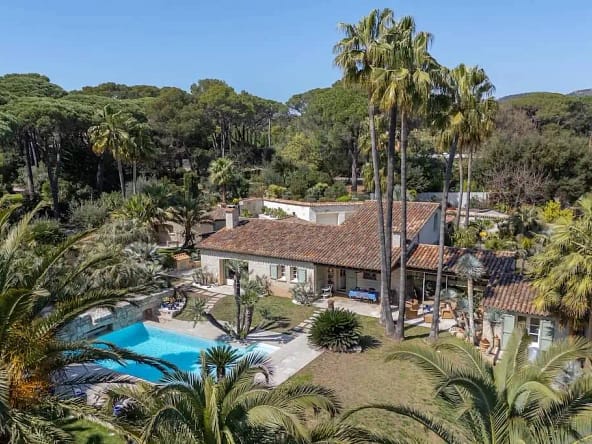Spain is a prime destination for luxury real estate investment thanks to its incredible Mediterranean landscapes, warm climate year-round, and rich culture. Moreover, the country’s market stabilities, combined with appealing tax incentives and strong buyer demand, make it an excellent location for high-end real estate investments and second homes.
Those looking to buy luxury real estate in Spain will have to navigate the country’s legal framework, which includes guidelines for financing, property registration, residency, taxes, and visas. It’s especially important to understand your financing options, including eligibility criteria, interest rates, and loan terms, along with the tax structure in Spain, which includes capital gains, property, and wealth taxes.
Whether you choose to buy a home in a bustling city like Barcelona or Madrid or in a coastal town like Costa del Sol, you’re sure to enjoy an ideal balance of comfort, luxury, and long-term value.
Table of Contents
What Are the Key Steps To Buying a Luxury Property in Spain?
There are a number of steps to the property-buying process in Spain. Here’s an overview of what to expect:
Preparing To Buy a Property in Spain
- Obtain a Spanish tax ID number, called a Número de Identidad de Extranjero (NID). This is used by non-residents who want to purchase property in Spain.
- Open a bank account in Spain, which you’ll use for all financial transactions related to the property purchase.
- Hire a property agent, along with a Spanish property lawyer, a financial advisor, and a translator if you’re not fluent in the language.
- Arrange a mortgage if you’ll be taking one out. You’ll finalise the details later, but you should speak with a mortgage provider at this time to discuss your needs.
Finding and Buying a Property
- With your property agent, conduct market research and view properties that match your criteria.
- Once you find a home you’d like to buy, make a formal offer to the seller by writing a letter of intent, called a reserva or oferta de compra.
- Sign the contrato privado de compraventa, which is the preliminary contract. This document formalises the terms of the sale.
- Pay the deposit, which is usually 10% of the purchase price and is not refundable.
- A contrato de arras, or a deposit agreement, will be drawn up. This document prevents both the buyer and the seller from backing out of the sale before the deed is signed.
- Have your lawyer conduct due diligence. During this process, you’ll verify the legal status of the property, review property documentation, and carry out other necessary steps.
- Make final arrangements for the mortgage, if necessary.
- Sign the escritura de compravento, which is the final deed of sale, in front of a notary.
- Pay the balance due, which will include the remaining sale price, taxes, and additional costs.
- You’ll receive the keys to the property, and you can officially call it yours!
- Register the property immediately — the next section covers why this is important.
Registering the Property
It’s important that the buyer registers the title deed immediately after signing the final deed of sale. This secures the buyer’s legal ownership of the property and protects their investment.
Until the property is formally registered, the sale is not 100% legally binding, and the buyer remains vulnerable to financial and legal risks. Officially being recognised as the owner of the property prevents fraudulent resales, hidden debts from appearing, and third-party claims from being made.
How To Find the Right Luxury Property in Spain
Your first step should be to find an property agent with experience in the area you’re looking to buy. Working with a specialist property agent in Spain will give you numerous advantages over attempting to go through the process on your own, such as:
- Access to exclusive, off-market listings
- Expert negotiation skills honed over decades in the industry
- Deep knowledge and understanding of local markets and regulations
Next, it’s important to research the market in the specific region you’re interested in owning property. This is the best way to ensure that you find a home that meets your requirements and matches your preferred lifestyle. For example:
- In the Barcelona area, you’ll find city real estate and penthouses, along with historic mansions.
- Costa del Sol and Marbella have a number of gated communities and golf estates.
- For high-end waterfront villas and investment properties, consider searching in Ibiza and Mallorca.
A property agent can streamline the entire buying process, help you overcome language barriers, discuss investment potential and market trends, and guide you through due diligence steps. Having an expert on your side when buying Spanish property maximises the value of your investment while minimising your risk.
What Are the Key Legal Checks Before Proceeding With the Purchase?
There are a number of important legal checks that need to be made before proceeding with the purchase of a property. These include:
- Ownership Verification: This step ensures that the seller is the rightful owner of the property and has the authority to sell it.
- Outstanding Debts: A thorough check will reveal if there are any outstanding debts attached to the property, like a lien, mortgage, or unpaid taxes.
- Zoning and Planning Permission: This verification confirms a number of compliance requirements, like if the property follows environmental protections and building codes for the area; if it was legally built; and if it can be renovated, expanded, or otherwise developed in some way.
- Coastal Law Restrictions: Spain’s coastal law, called La Ley de Costas, regulates how land is used along the coast, such as by imposing renovation guidelines and limiting new developments. The goal is to prevent illegal seaside construction and protect public access.
Understanding Local Regulations
Property buyers should have a thorough grasp of the local regulations where they’re looking to buy property. This is especially important in locations like Barcelona, Ibiza, Mallorca, and Marbella, where specific coastal protection rules, rental restrictions, and zoning laws must be followed. For example, areas of high demand tend to strictly regulate short-term rentals, and there may also be building or renovation restrictions to comply with.
Adhering to these laws, ideally with the guidance of a legal professional, will protect your investment and prevent legal issues.
What Are the Considerations for Buying a Rental Investment Property?
If you’re considering buying a rental investment property in Spain, certain factors must be considered, especially when it comes to short-term versus long-term rentals, taxation, and ROI potential.
Short-Term vs. Long-Term Rental Regulations
Certain cities, like Barcelona and Marbella, have strict licensing requirements for rental properties. For example, you may have to meet guidelines regarding amenities, property size, and minimum length of stay to be approved to rent out your property.
A tourist rental license, called a licencia de alquiler turístico, may be mandatory for short-term rentals that cater to tourists, such as Airbnb-style rentals. This type of license shows that the property is in compliance with health, safety and zoning laws. Areas of high demand may have limited available licenses, which can make it difficult to be approved to operate a rental property.
On the other hand, long-term rentals often have fewer restrictions to adhere to. However, you’ll still need to follow tenancy laws and provide tenants with secure contracts.
Rental Taxation for Non-Residents
The tax rate you’ll pay on rental income is dependent on your residency status. For example, EU residents are typically taxed at a lower rate than non-EU residents on rental income. Moreover, non-EU residents cannot deduct property-related expenses, like management fees, which can cut into their profit.
Since taxes have a direct impact on the income you can generate from a rental investment property, it’s important to know what to expect before making a purchase.
ROI Expectations
Areas of high demand, like Costa del Sol, Ibiza, and Marbella, tend to yield high rental income, especially for luxury properties that cater to affluent expats and tourists. Beachfront estates, penthouses, and private villas can garner high rates whether you rent out short-term or long-term stays.
By buying property in high-demand areas and offering premium amenities to guests and tenants, you can expect strong returns. However, keep in mind factors like seasonal fluctuations in tourism and demand, as well as the costs of property maintenance and management.
Final Thoughts
Spain’s structured buying process paves a clear path to owning a luxury home in one of the world’s most sought-after destinations. Each step is necessary for a smooth and successful transaction, from working with an estate agent to find the perfect property to verifying the seller’s legal ownership of the home, conducting due diligence, and complying with regional regulations.
To get the most from your property purchase, it’s best to work with a property agent who specialises in luxury Spanish property.
HOMEHUNTS property agents are able to select beautiful, high-end property in Spain based on your specific search requirements. Whether you want to live in the middle of a busy city or in a more tranquil setting, there is Spanish property to fit your needs. Search the HOMEHUNTS website and browse our selection of luxury homes. You can also speak directly to one of our property consultants by calling +33 (0)970 44 66 43.





